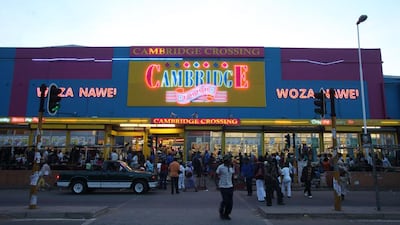Shoppers in Africa’s second-richest country have long shunned online retail. Instead, shopping malls are usually teeming with consumers pushing their squeaking trollies between well-stocked aisles.
However, after the pandemic forced shoppers to stay home, retail has begun to shift online. The South African retail market is worth a hefty $115 billion, according to a study by Deloitte, but e-commerce previously managed to snag only around 1.4 per cent of this.
E-commerce giants are cashing in on the latest boom. Takealot, South Africa’s largest e-commerce site that is owned by internet giant Naspers, recorded total sales of 6.2bn ($407.5 million) rand in the six months to September 2020, up 85 per cent on the same period a year ago.
“We adapted very quickly to the new environment brought about by Covid-19,” Bob van Dijk, Naspers chief executive, said on a conference call. “There has been a surge of consumer usage of the internet.”
Founded in 2011 as an Amazon-style platform that sells everything from fashion to IT equipment, Takealot is yet to be profitable. However, the pandemic could turn around its fortunes – a sentiment echoed by Mr van Dijk. “I am confident this [sales] will build over time,” he added during the call.
This is quite a transformative shift for a country built around shopping malls. More than 2,000 exist, of which 750 are in the industrial heartland of Gauteng province alone. The brick-and-mortar retail trade is so lucrative that even the US retail behemoth Walmart entered the country in 2011, after investing $2.5bn for a controlling stake in local retail chain Massmart.
However, brick-and-mortar retailers have reacted swiftly to counter the online retail threat by launching omni-channel operations. Woolworths, the upmarket food and clothing retailer, says its online sales spiked a massive 65 per cent, and recently made a pledge to deliver an order within the hour. Other major chains such as Pick ‘n Pay and Checkers Shoprite, Africa’s largest retailer, have also powered ahead with e-commerce projects.
“For the first time, we are looking at consumers buying items such as groceries in the online space, not just a new computer or a phone,” says Craig Lubbe, chief executive of bidorbuy, the country’s largest online auction platform.
The pivot to online shopping has been so sudden that it has caught many by surprise. Prior to Covid-19, just 4 per cent of South African consumers shopped online frequently, according to a Nielsen study this year. That figure rose to 11 per cent in May and 12 per cent in September. Sixty-eight per cent of the consumers are now using both online and offline retail channels.
“The logistics and supply chains around the country have definitely been under strain,” says Mr Lubbe. “We had [record] Black Friday … sales in June and July, something we had not been expecting.”
South Africans are now shopping online not just for necessities.
“We have all been adjusting to a new way of living and are understandably shopping more online, though it’s not just for essentials like clothing and groceries but for virtual experiences ranging from films to cooking classes,” says Suzanne Morel, country manager at Mastercard, South Africa.
“What’s more, this trend appears to be here to stay as 71 per cent of respondents say they will continue to shop online post-pandemic.”
There are concerns that e-commerce has largely benefited only a small portion of the middle class. “Online shopping is certainly not inclusive,” says Professor Tshilidzi Marwala, the vice-chancellor and principal of the University of Johannesburg.
Most adults own a phone – 91 per cent of the population has a smart device, according to the Independent Communications Authority of South Africa. However, this did not automatically turn people into internet shoppers, Mr Marwala says. “There are large portions of the population who cannot adapt to online retail.”
The high cost of data is a major impediment to internet connectivity, even if they do have a smart device.
In the meantime, those who can afford to both surf the internet and have disposable income, will increasingly shop online. There are even indications that being online has also helped families come together, says Takealot’s Mr Lubbe.
“One of the more heart-warming developments is the demand for board games, with parents sitting at home looking for ways to keep their children entertained.”


